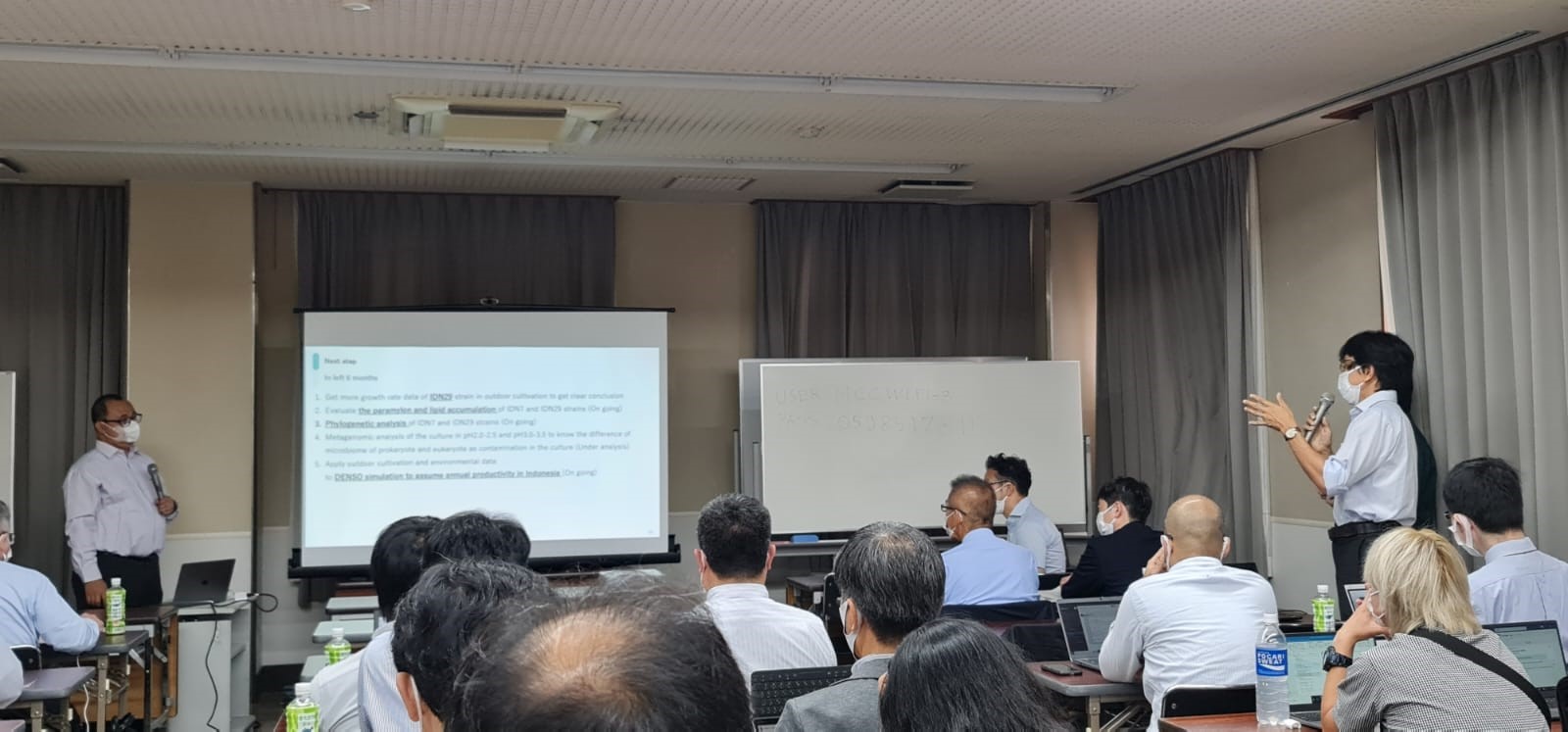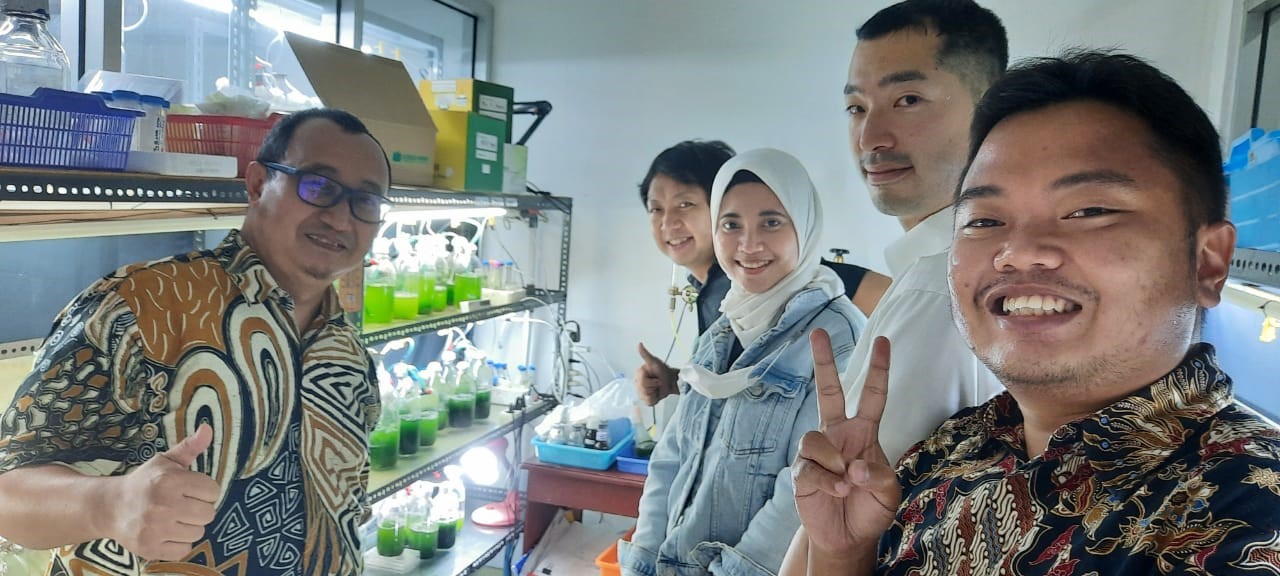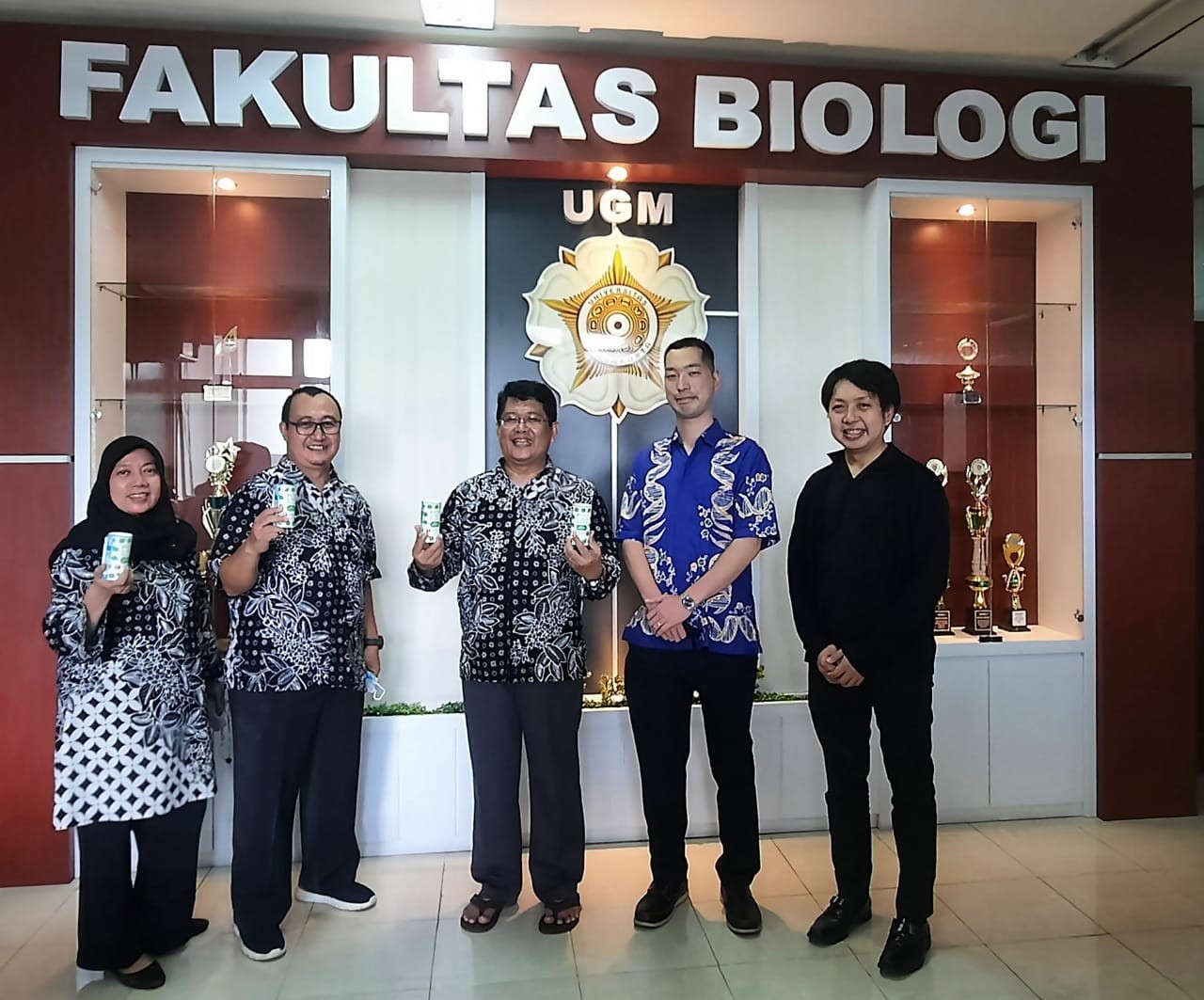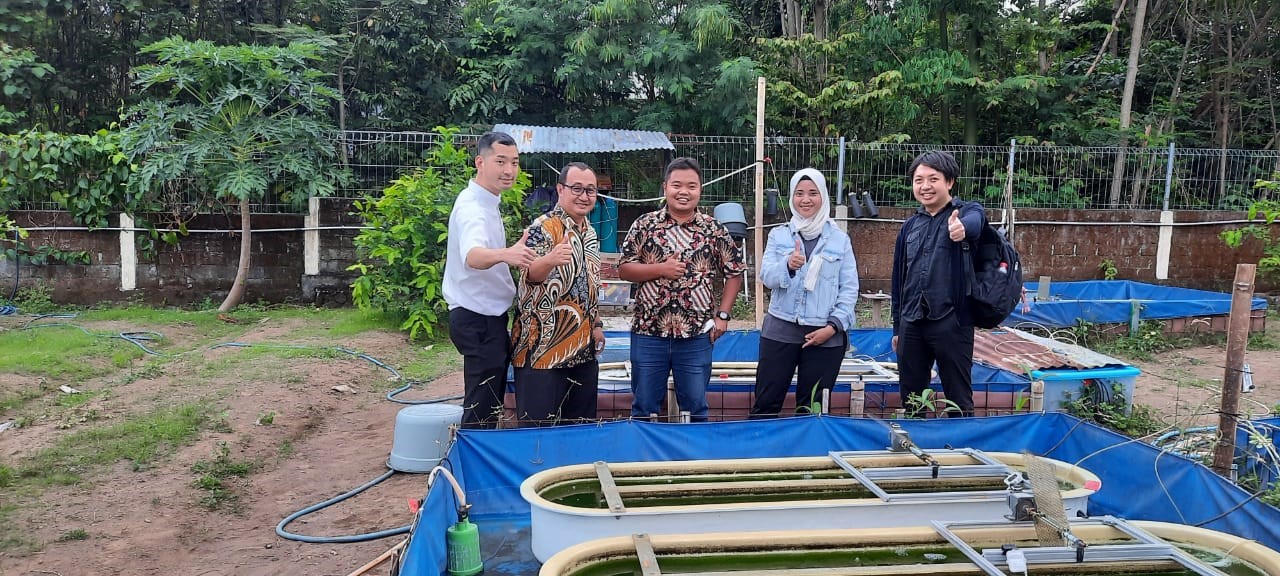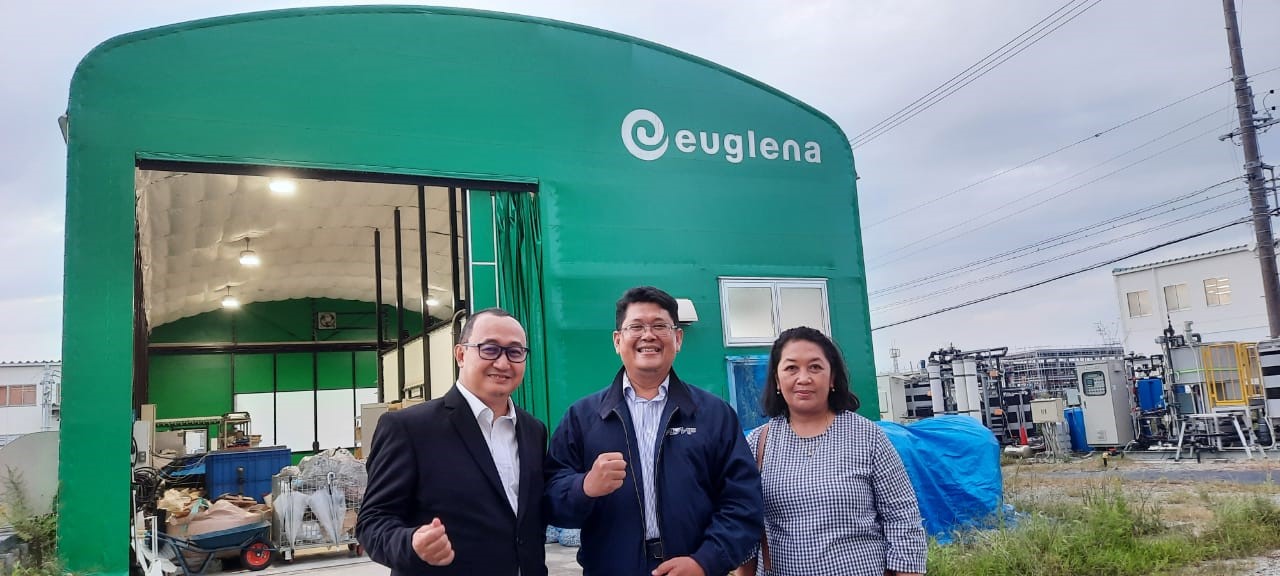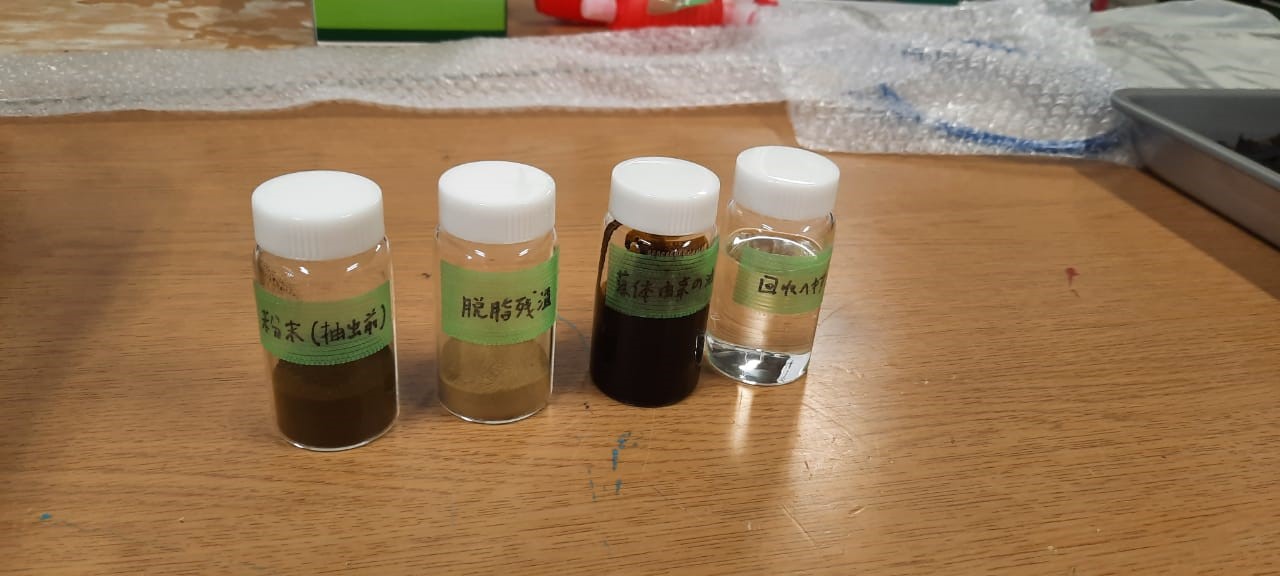Euglena is an organism that has both plant and animal characteristics. These organisms can move like other aquatic animals because they have flagella. However, it also carry out photosynthesis as in plants. So that Euglena can absorb CO2 through the process of photosynthesis and can take food directly through the cell surface.
Food is often stored as a complex carbohydrate known as paramylon, which allows organisms to survive in extreme conditions. Euglena is rich in wax esters used for the production of BioAvtur and also contains protein and other active compounds which are developed into food, feed, cosmetics, drugs and fertilizers. Furthermore, Euglena also has the ability to absorb CO2 produced from flue gas, so it can be developed to reduce the greenhouse effect.
Dr. Eko Agus Suyono, a lecturer at the Faculty of Biology UGM together with PUI Microalga Biorefinery, Center for Energy Studies and the Department of Chemical Engineering UGM since 2019 received funding from NEDO (New Energy and Industrial Technology Development) Japan to collaborate with large industries in Japan such as Euglena Co,Jp , Mitsubishi, DENSO, ITOCHU and Universities/Research Institutes in Japan, such as Tsukuba University, Tokyo University of Marine Science and Technology and RIKEN.
Research conducted by the Faculty of Biology in the UGM research group has succeeded in obtaining more than 30 local Euglena isolates and one of them has a growth speed and biomass production that is competitive with Euglena strains from Japan both in laboratory and mass scale. In addition, the local isolates studied also have the ability to absorb CO2 up to 15% and can grow at low pH. The culture under low pH conditions is not only resistant to high concentrations of CO2, but also reduces the level of contamination by bacteria and fungi, especially on a mass scale. This research also received funding from SATREPS (Science and Technology Research Partnership for Sustainable Development) for the next 5 years in collaboration with BRIN (National Research and Innovation Agency), Universitas Padjadjaran, Universitas Pendidikan Indonesia, Indonesia Power Paiton, and partners from Japan, namely Tokyo University, Euglena Co.Jp and RIKEN.
RIKEN is Japan’s largest and most comprehensive research organization for basic and applied sciences founded in 1917, and has been promoting innovative and pioneering research in a wide range of fields spanning the entire range of the natural sciences, from biology to quantum physics and computer science. It is hoped that the results of research on Euglena can be a new and renewable energy alternative and can be a source of food and new medicines for the future.

